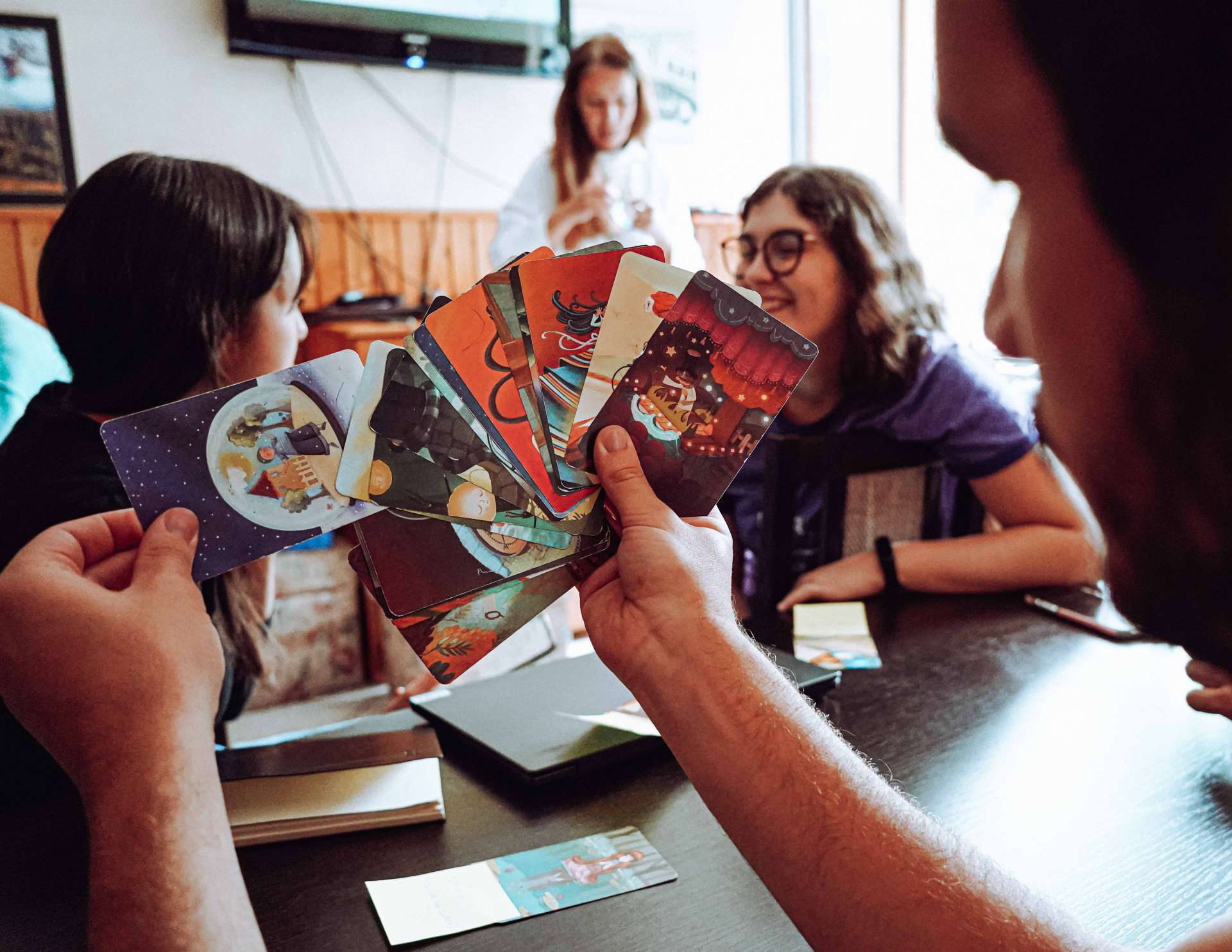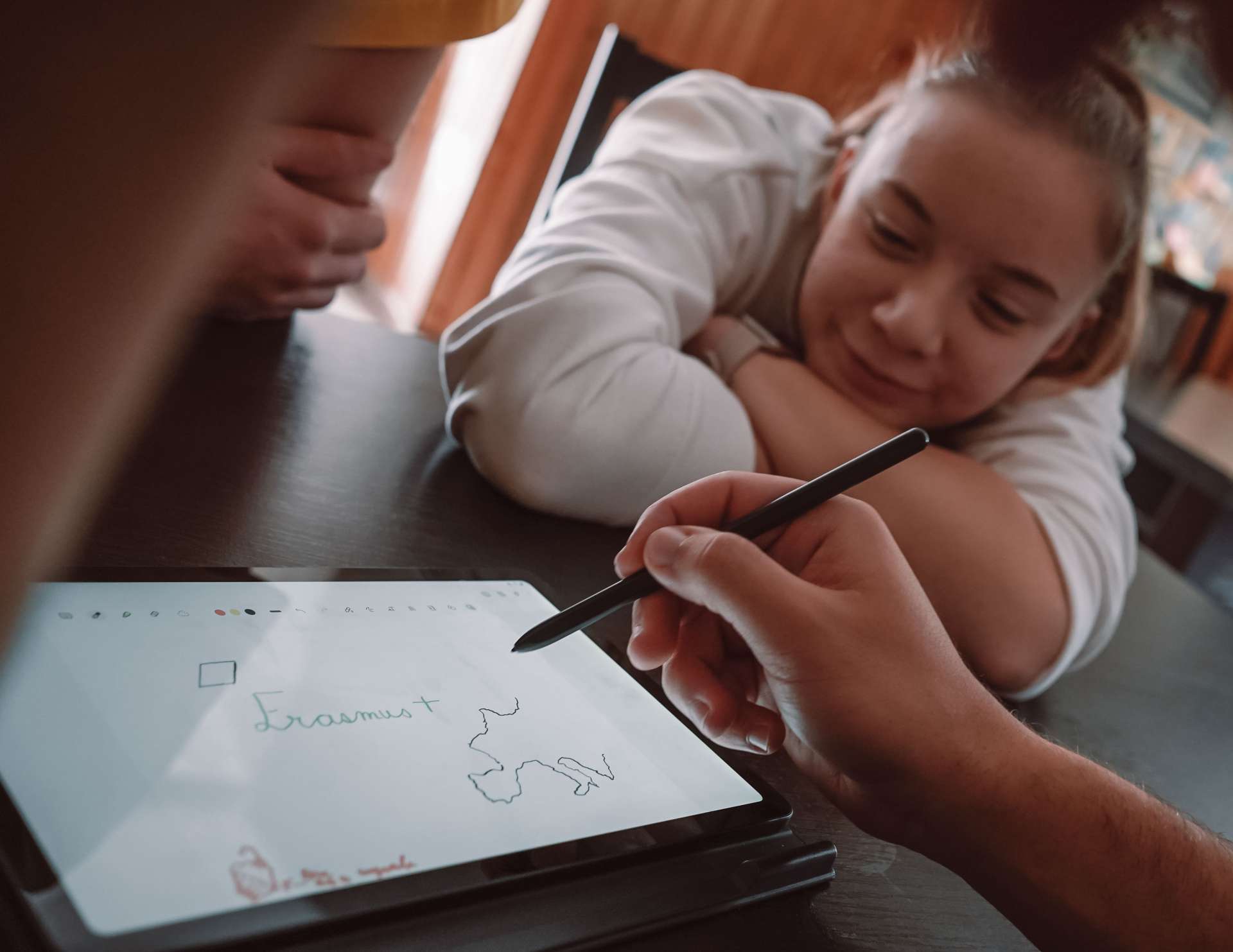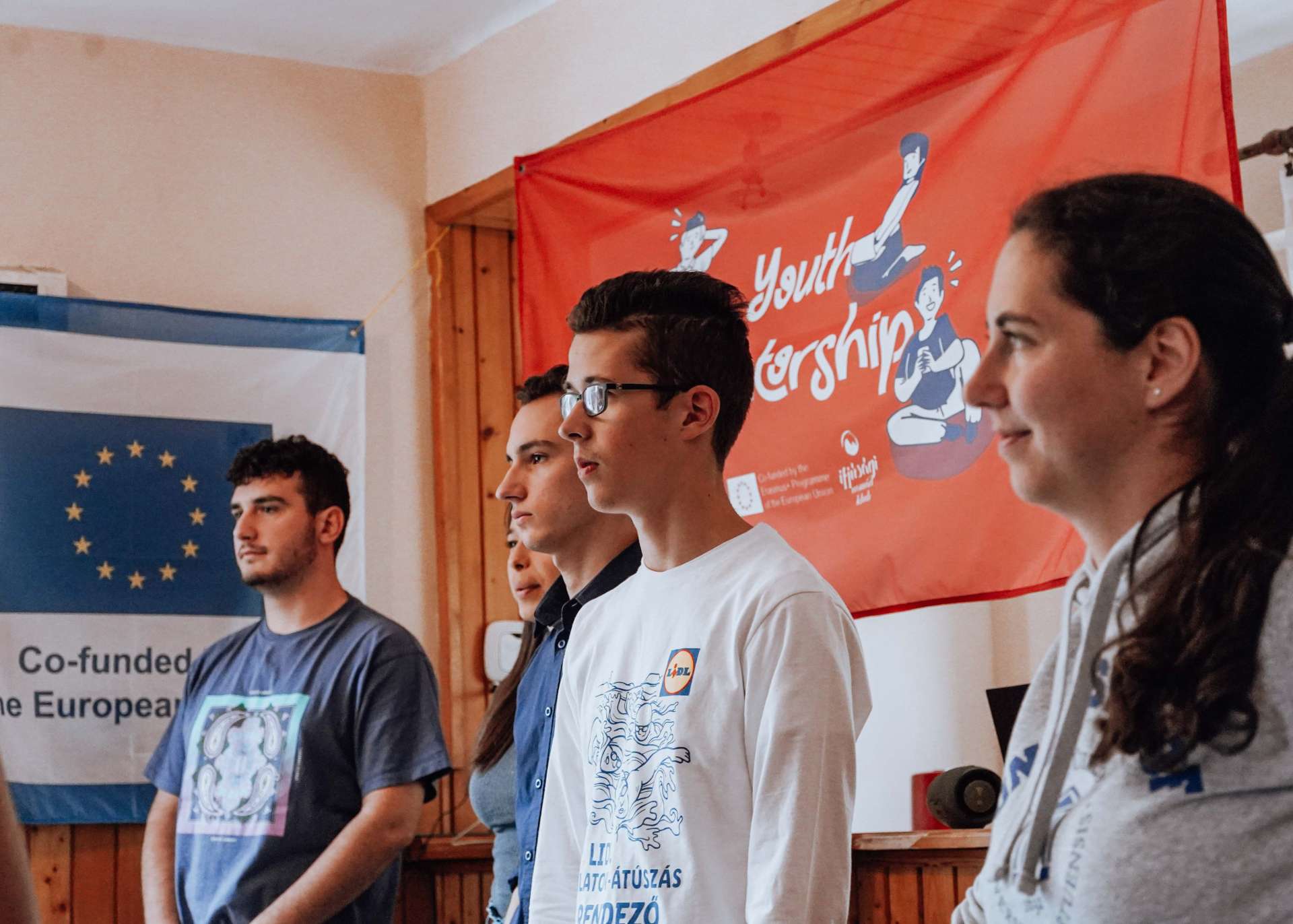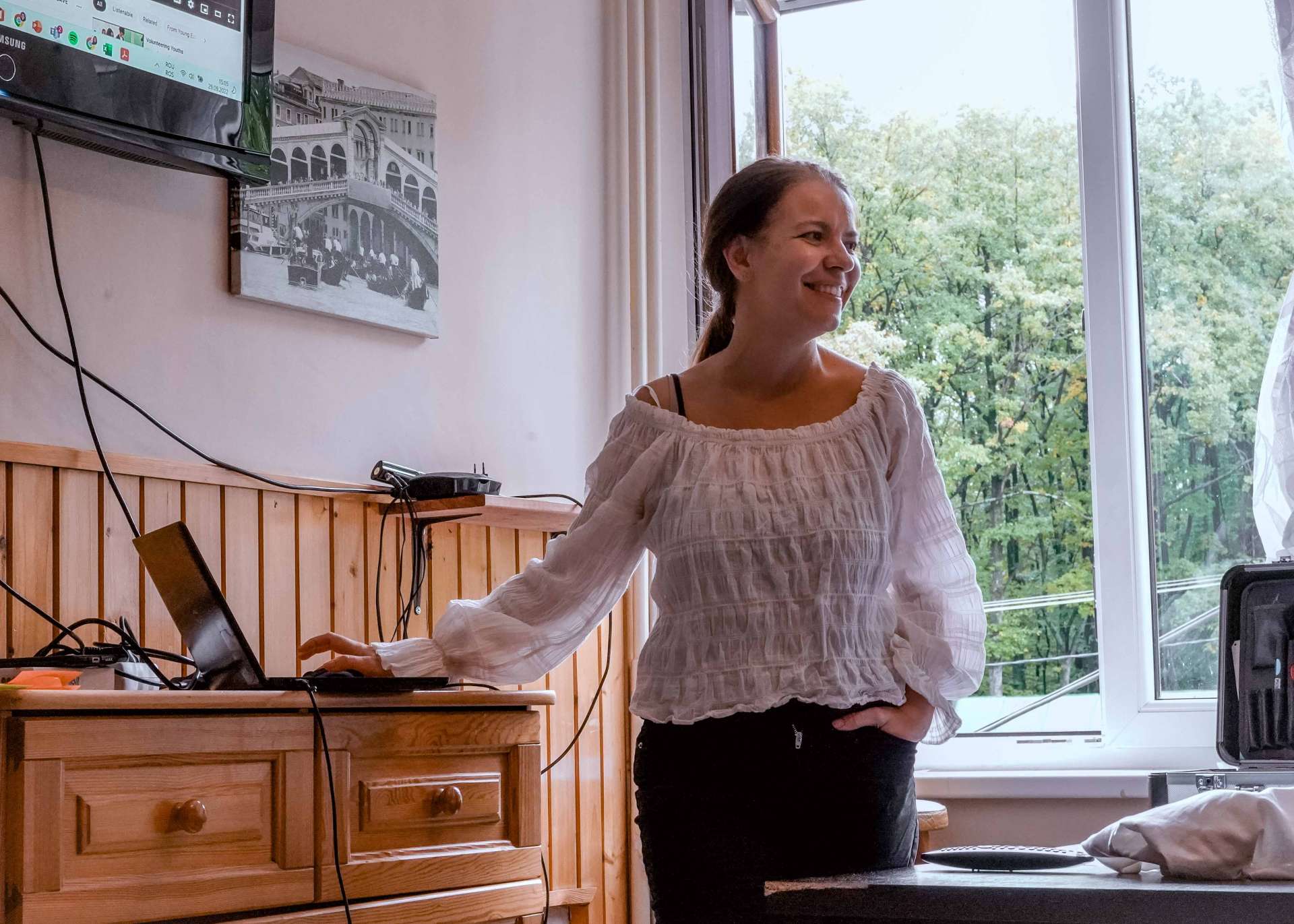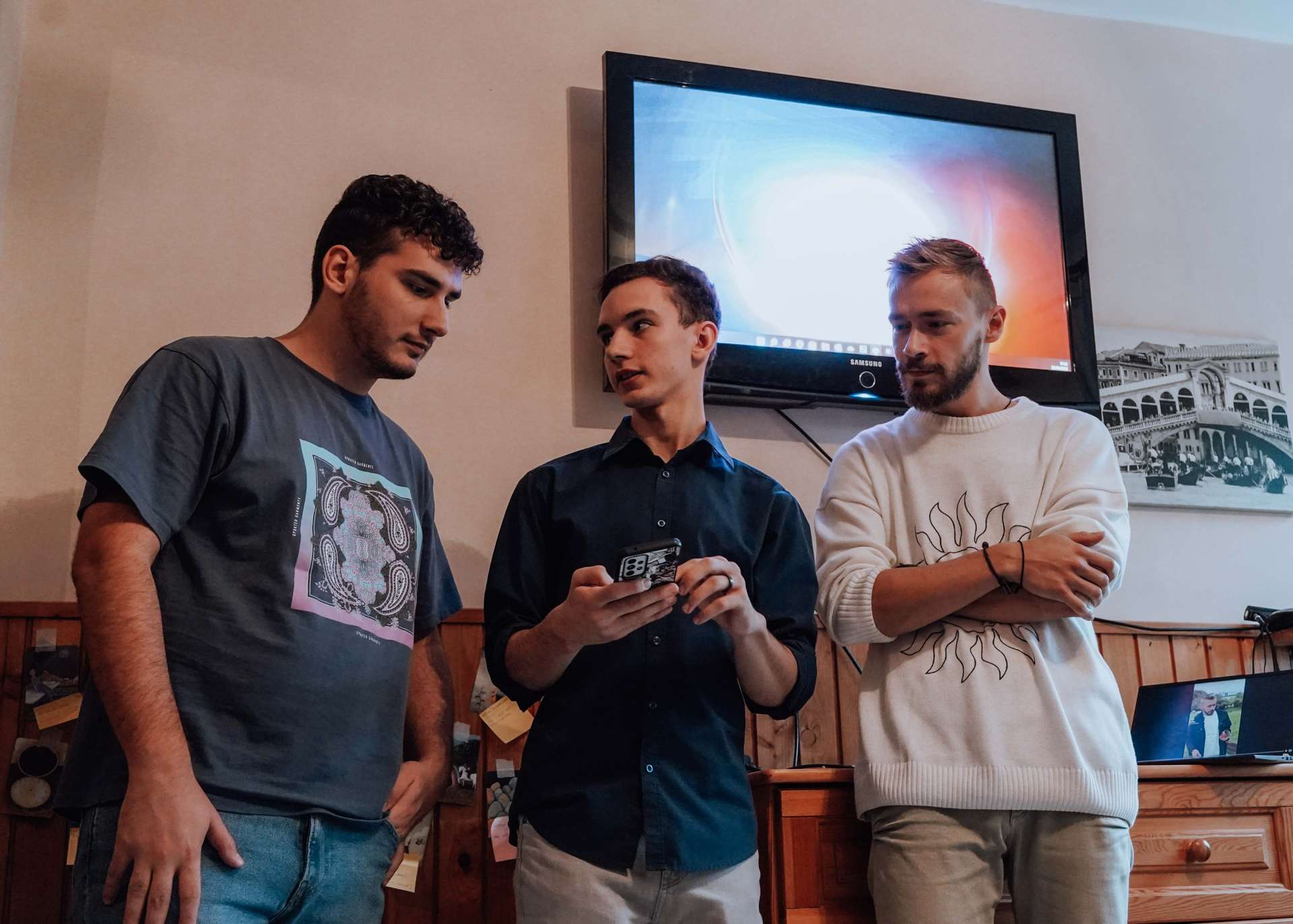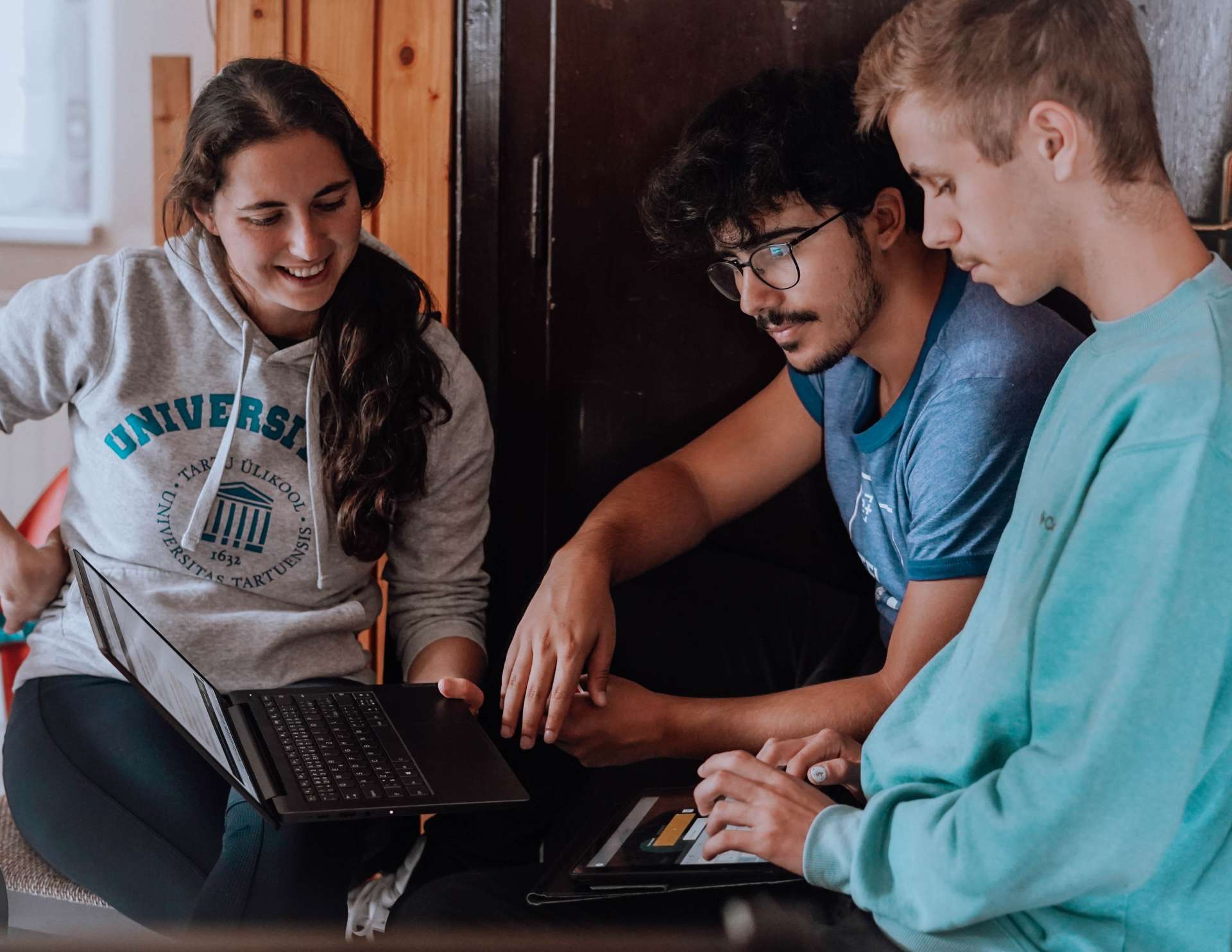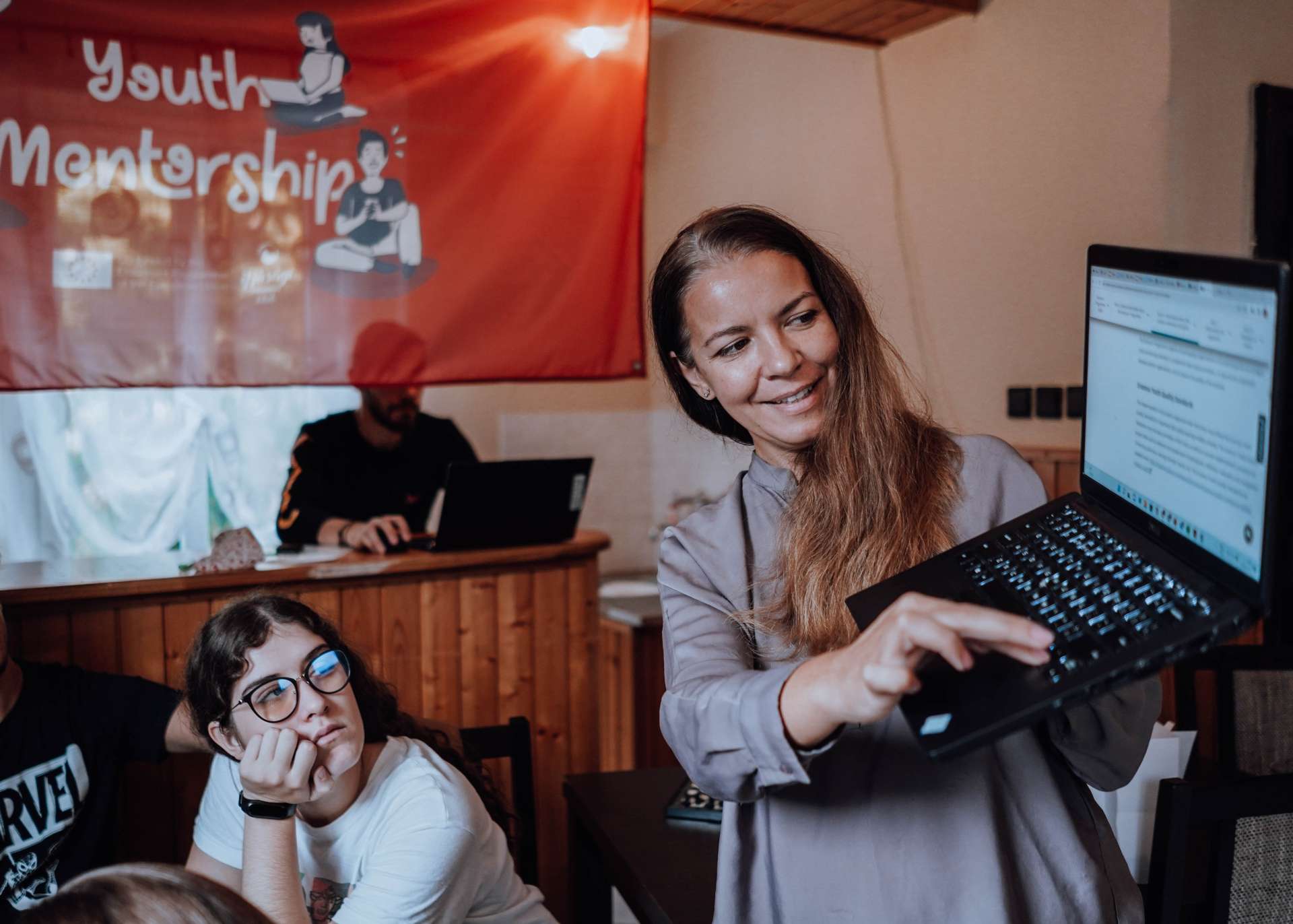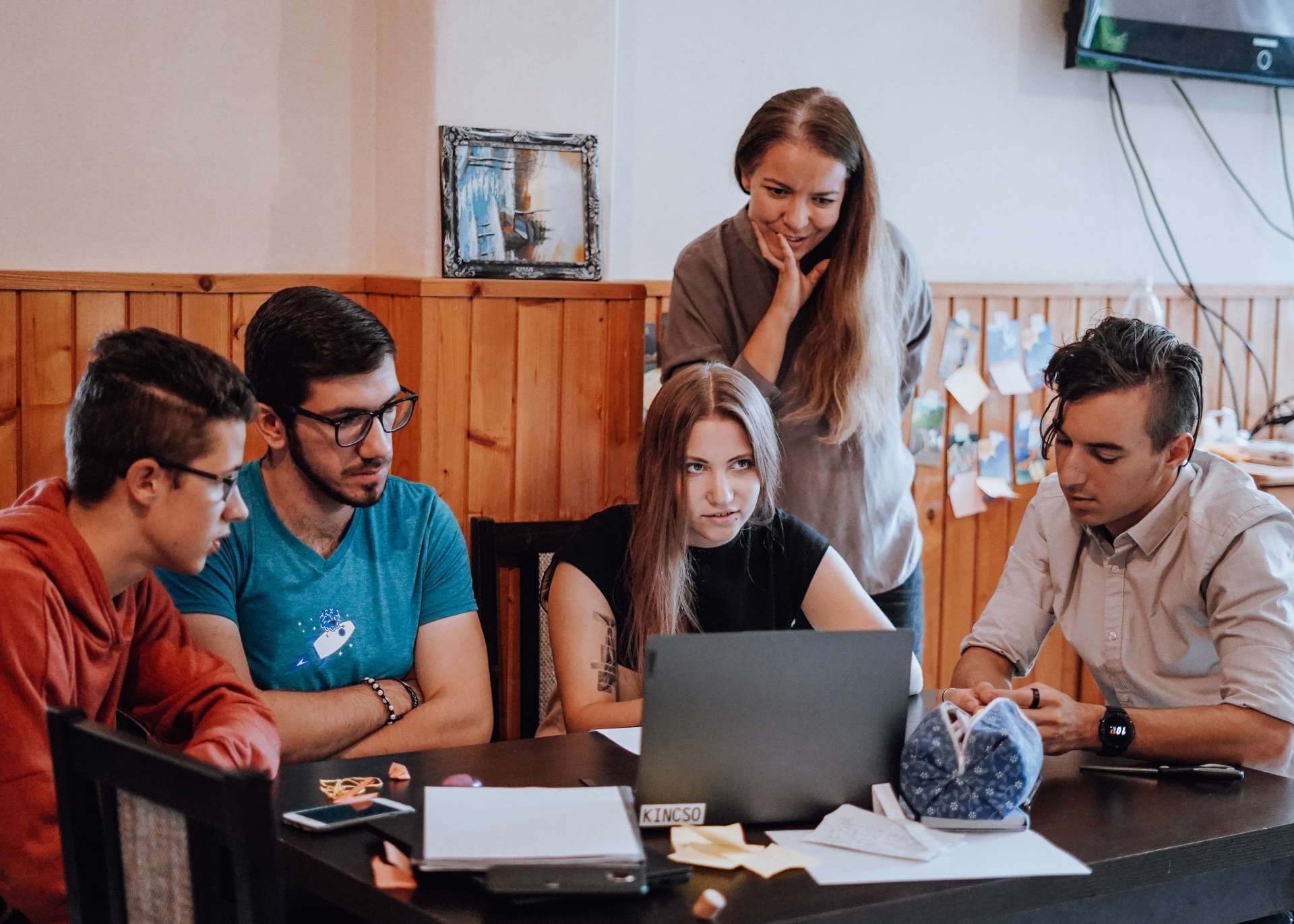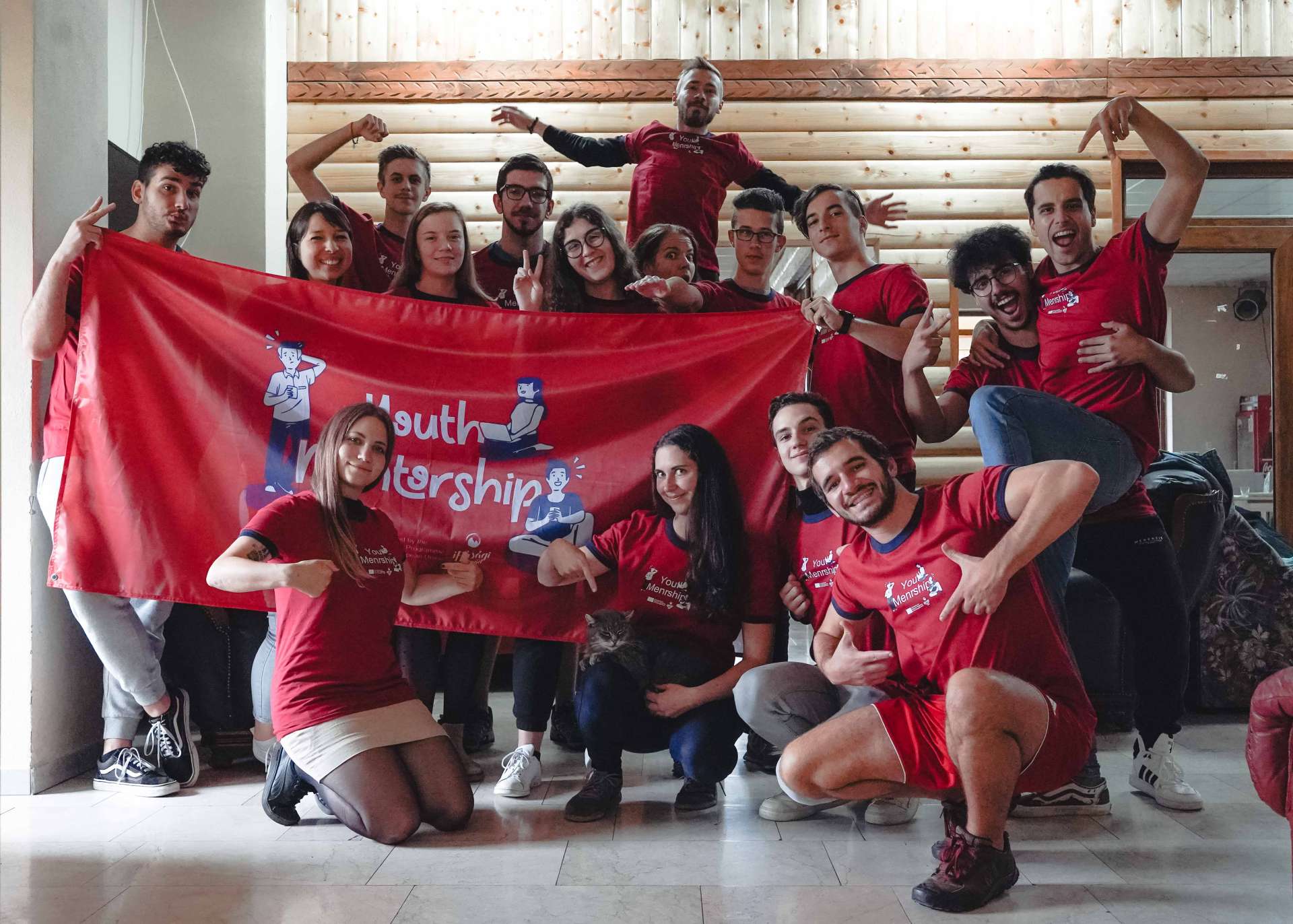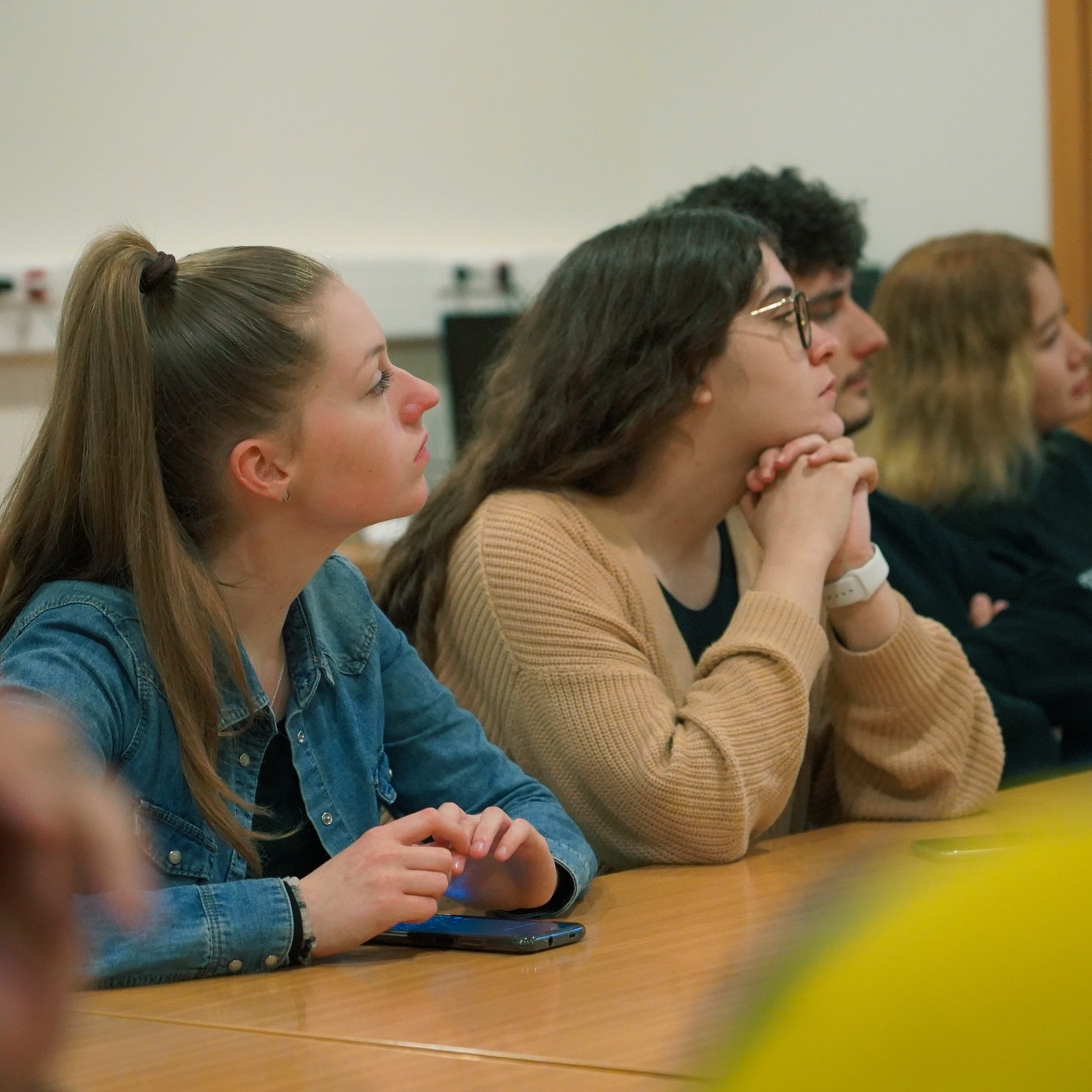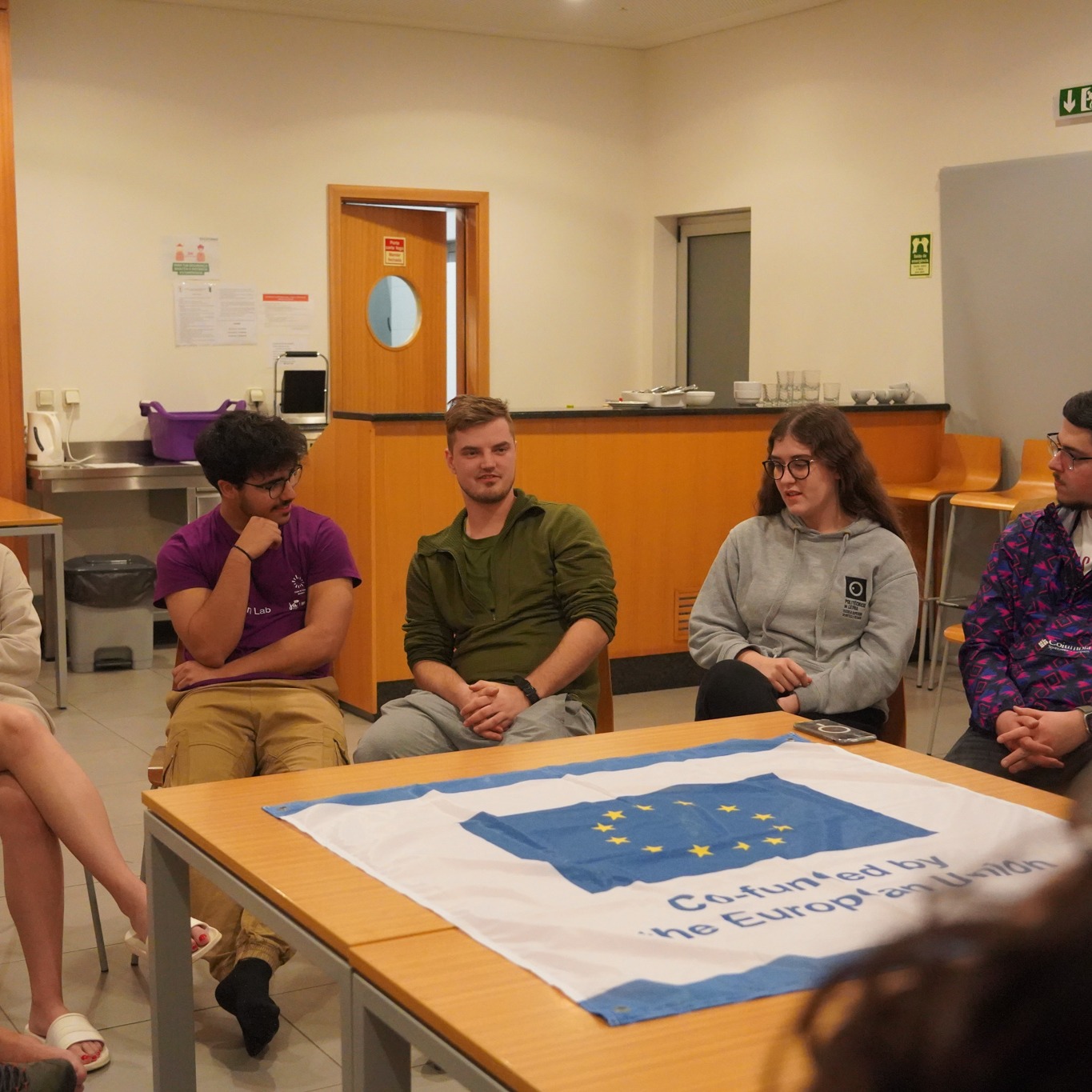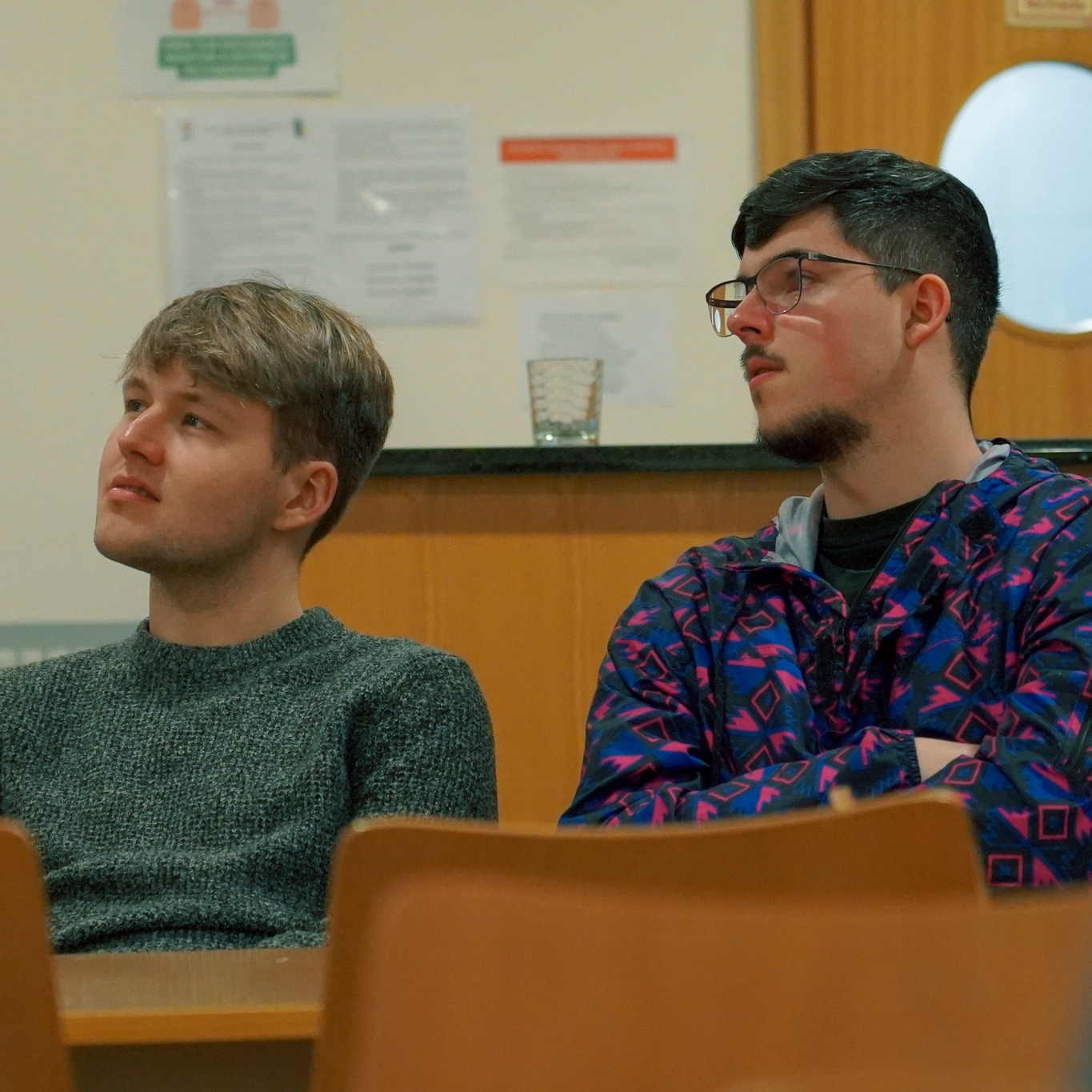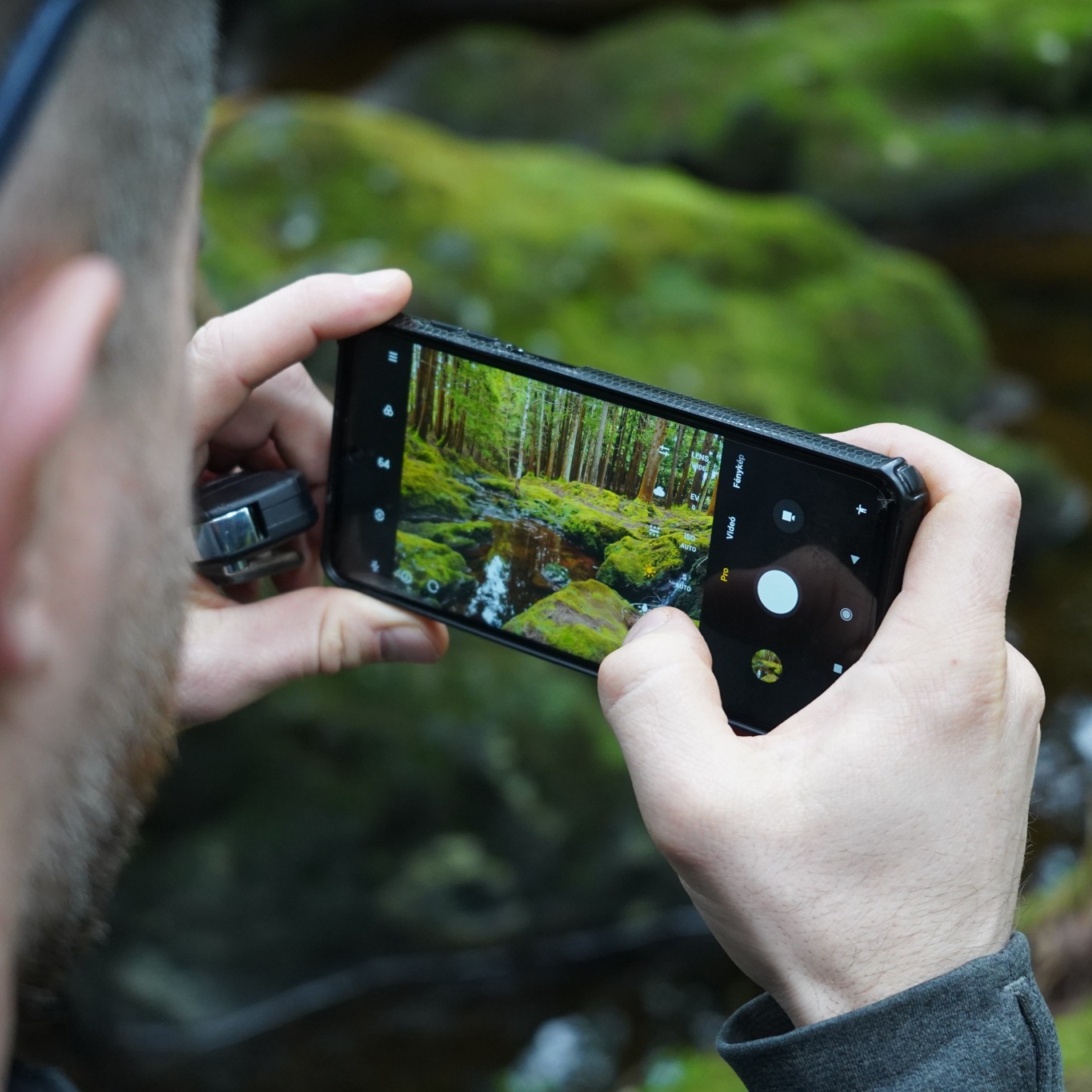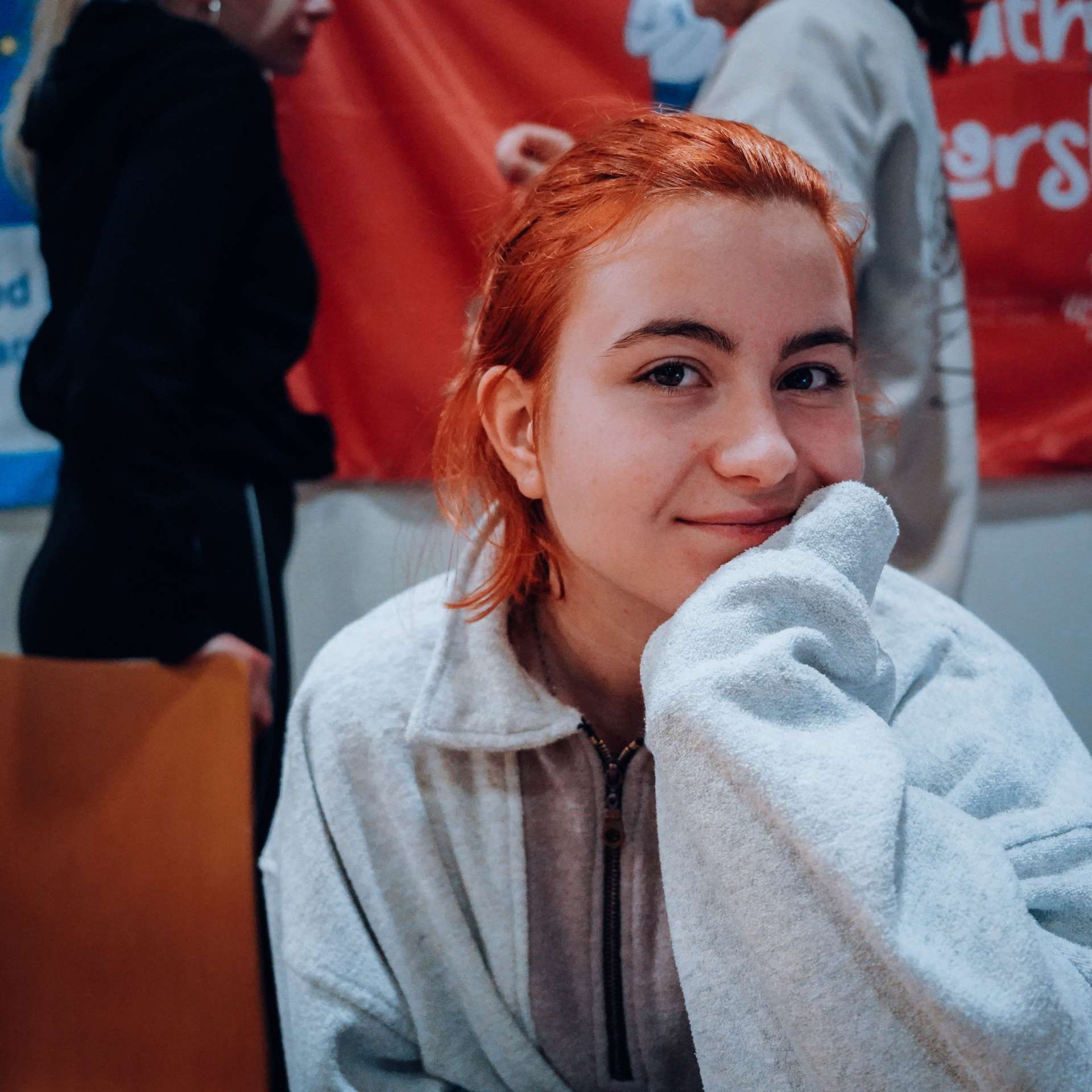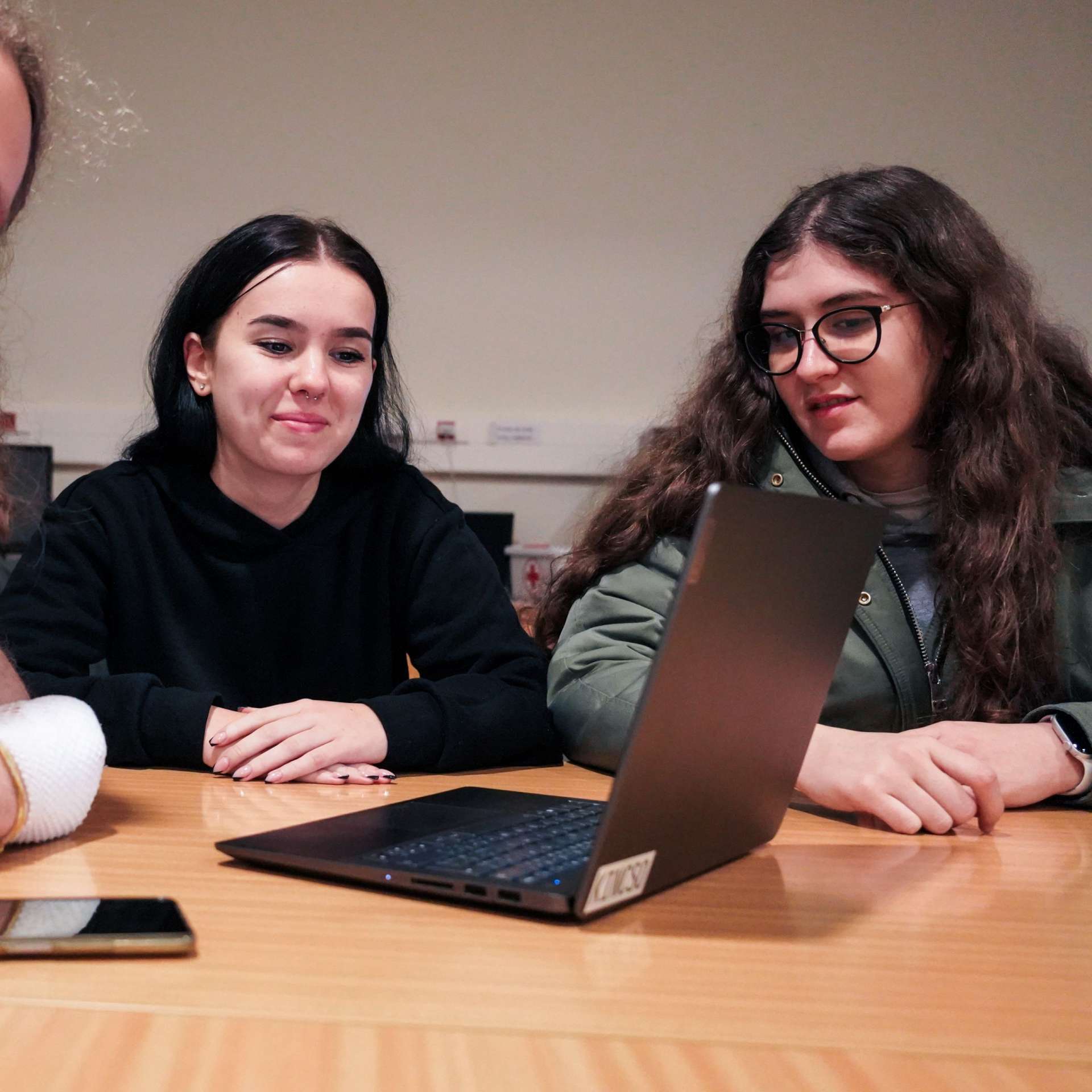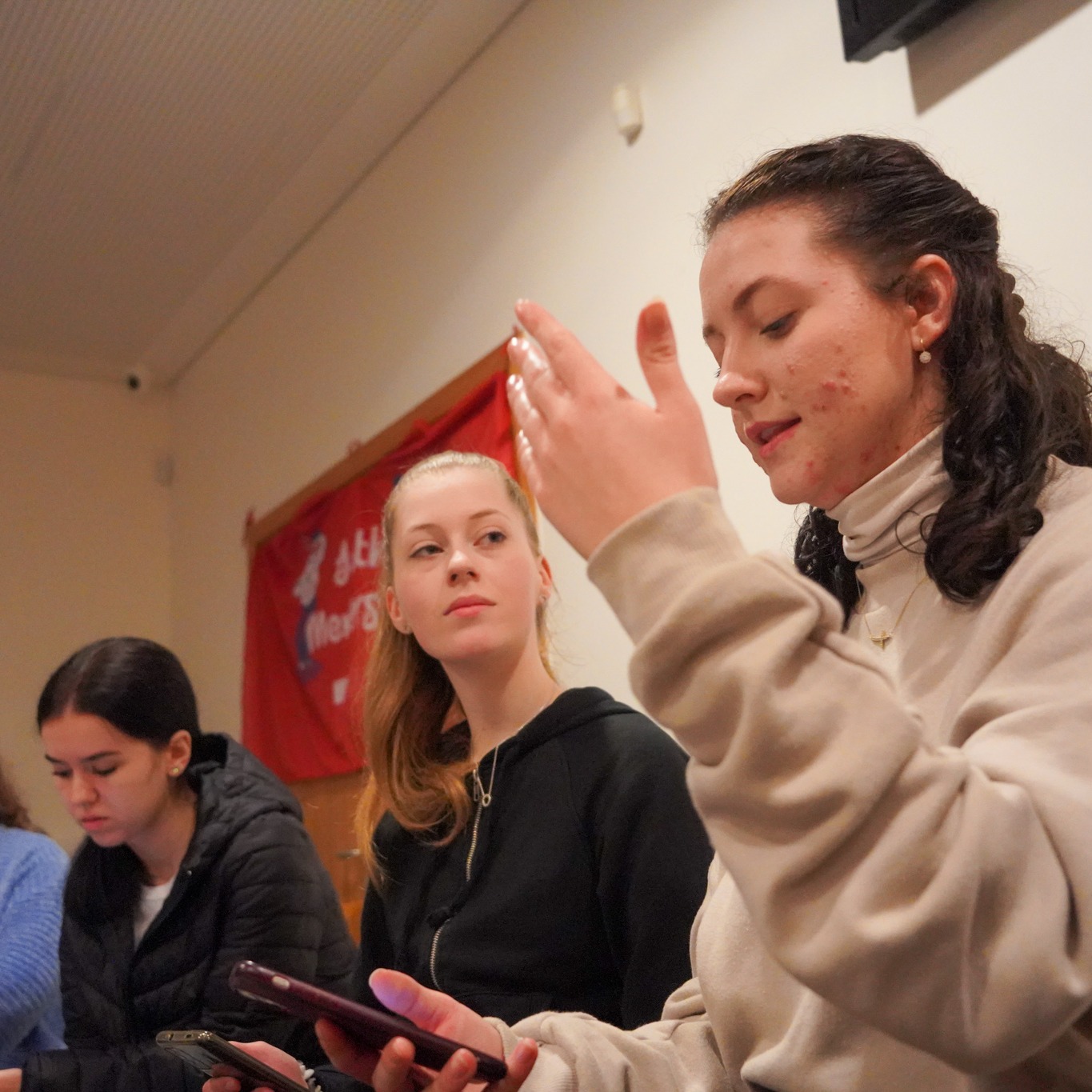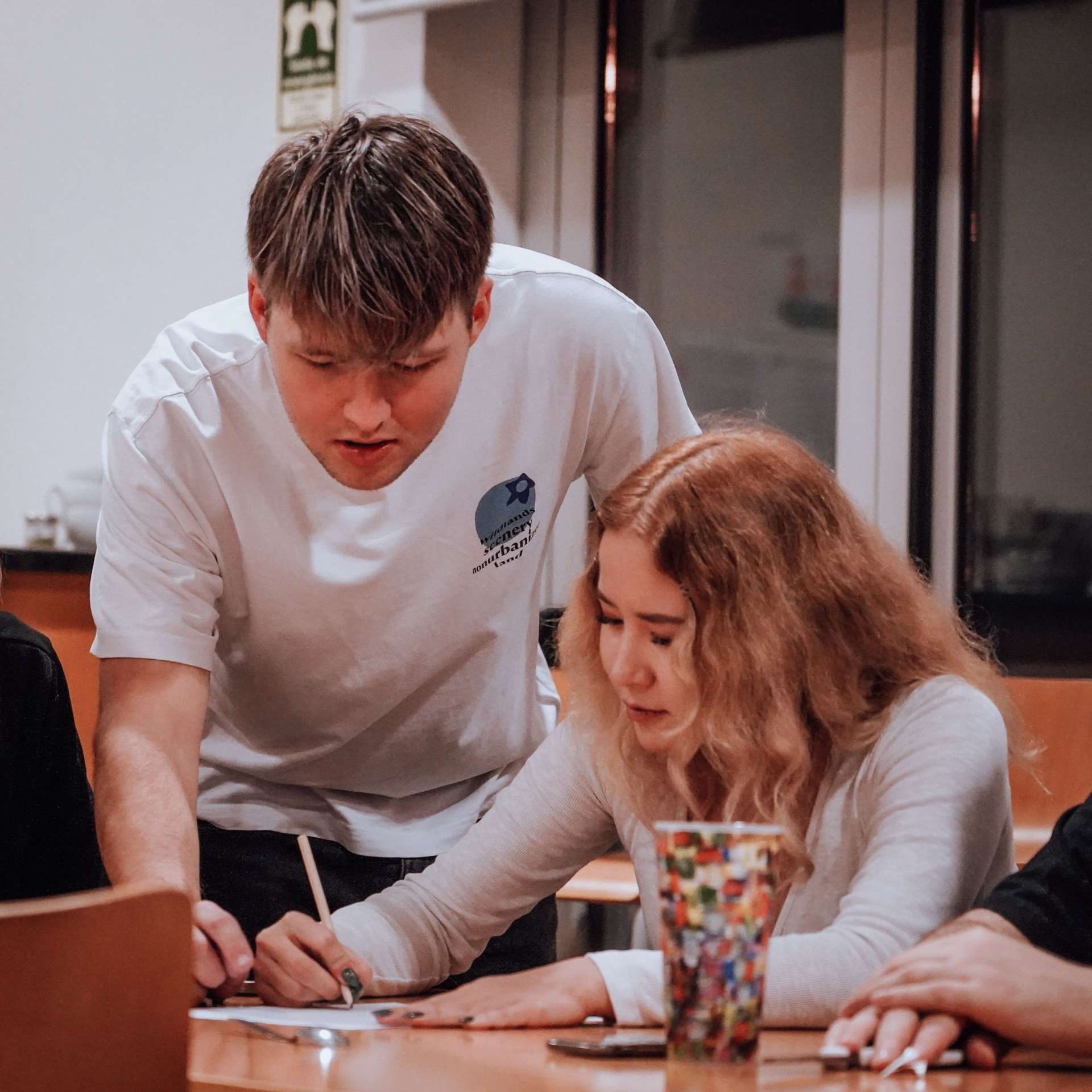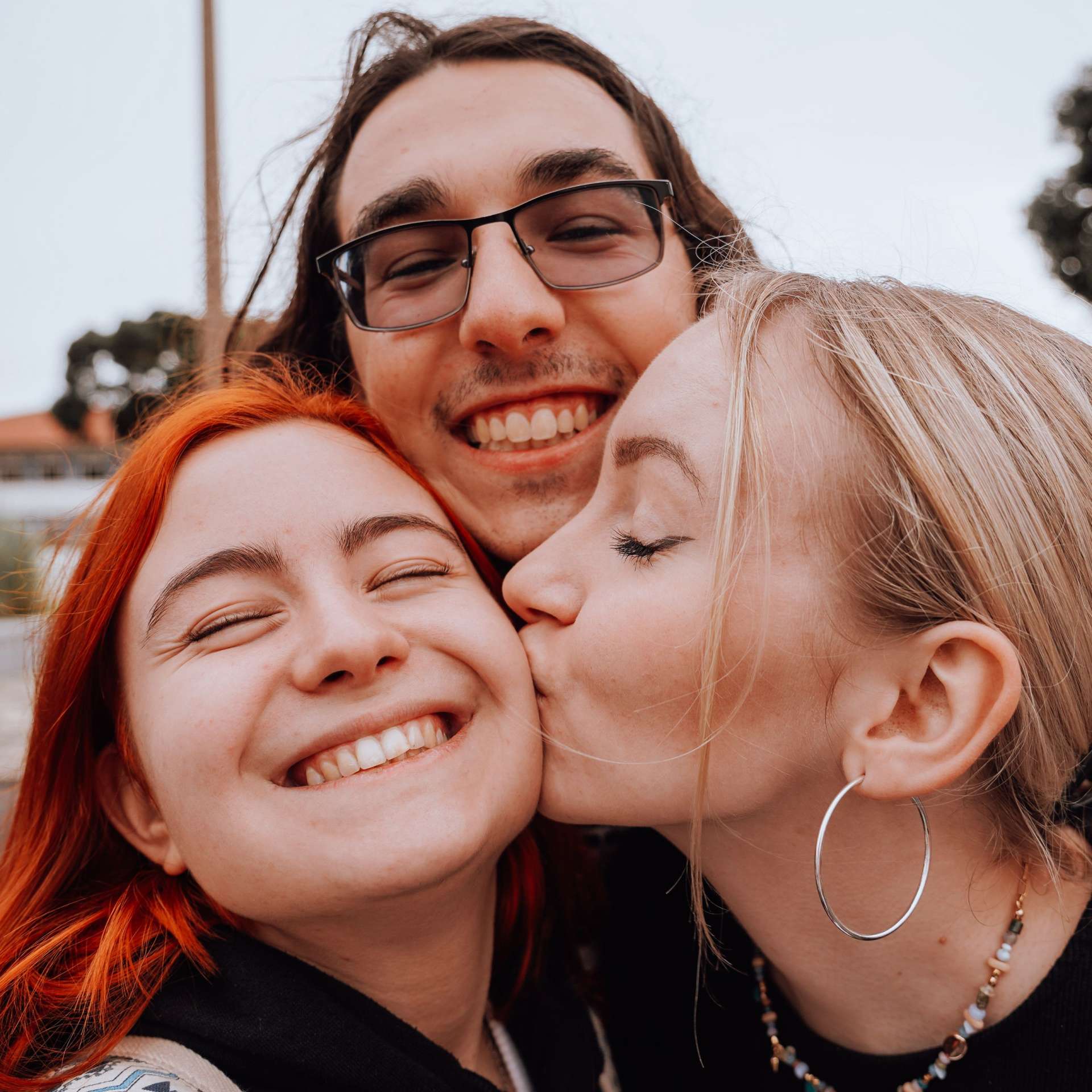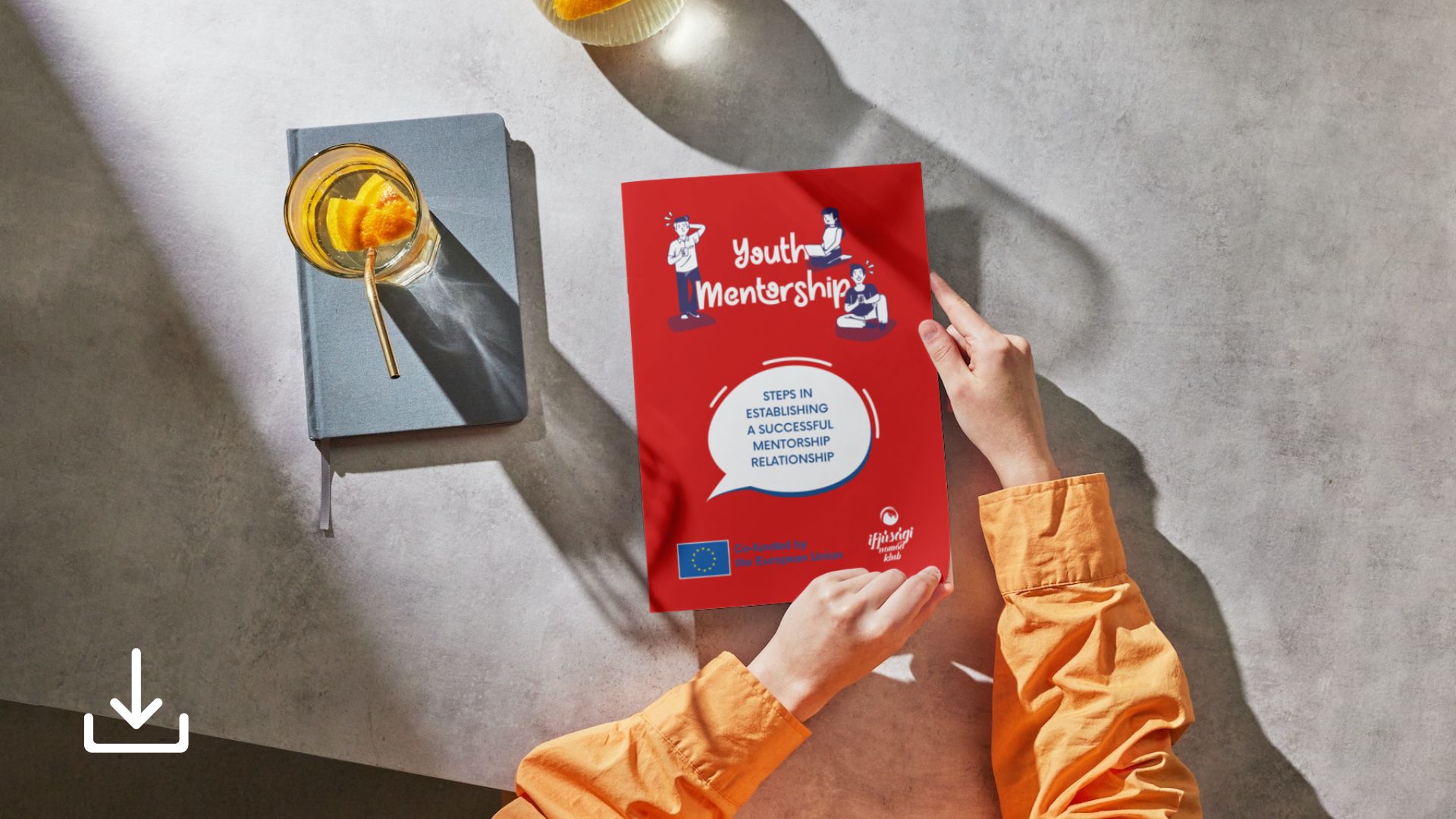We recognized the need for this project during the implementation of another KA2 project “Get Involved, Shape your Community”. As a consequence of the COVID-19 pandemic and its restrictions, the project was interrupted and all of a sudden we had to change our approach. We found ourselves having more and more communication and working with young people online. A few of them showed more interest in being involved and started implementing tasks, organizing activities, preparing discussions online. These mentorship calls started taking place during GISYC but soon the project was over and we found ourselves continuing to do it. We developed “Youth Mentorship” aiming to reach a more systematic approach on what the Mentorship Programme could be, its structure, better planning. This was interesting both for youth workers and young people and more than that it answered a clear need facing all the young people the partners work with: a mismatch between competences acquired and the needs of the labour market, leading many times to unemployment, underemployment and dissatisfaction at the workplace.
In today’s competitive job market, young people often face challenges when transitioning from education to employment. The “Youth Mentorship” project had a primary goal to increase the employability of young individuals by providing them with opportunities to develop relevant competences and acquire real-life skills in a non-formal learning environment. Through this project, participants were equipped with the necessary tools to ease their transition and thrive in the ever-evolving labor market.
OBJECTIVES
IMPACT
An integral aspect of the “Youth Mentorship” project was the creation of a systematic approach to integrate the mentorship program into the work of non-governmental organizations (NGOs). The aim was to ensure the sustainability of the mentorship program beyond the project’s duration, enabling it to continue operating and benefitting young individuals in the future. By embedding the mentorship program within established structures, the project fostered long-term impact and support for youth employability.
The “Youth Mentorship” Erasmus+ KA2 project has successfully empowered young individuals by equipping them with the necessary competences and skills to transition smoothly from education to employment. Through its international mentorship program, learning mobilities, and online mentorship meetings, the project has fostered personal and professional growth, increased participants’ employability, and promoted intercultural understanding. By embracing the project’s systematic approach, the mentorship program will continue to shape the lives of young people, preparing them for a prosperous future in the labor market.
ACTIVITIES
To better help us achieve our goals, the project organized two learning mobilities for the young participants, each with a specific focus on skills demanded by the labor market.
#1 SLOVAKIA
The first learning mobility of the “Youth Mentorship” project was centered around the development of soft skills that are in high demand in today’s labor market. Participants engaged in a comprehensive program designed to enhance their communication, public relations, leadership, critical thinking, collaboration, creativity, and strategic planning skills. These skills were carefully chosen to address the specific needs and challenges faced by young individuals when transitioning from education to employment.
During the mobility, participants had the opportunity to engage in practical exercises and interactive sessions that facilitated their learning and application of these soft skills. Mentees were encouraged to actively participate in group discussions, role-playing scenarios, and team-building activities to strengthen their communication and collaboration abilities. They gained insights into effective public relations strategies, leadership techniques, and critical thinking approaches. By incorporating real-life case studies and practical exercises relating to project writing and implementation, the learning mobility ensured that participants acquired these skills in a meaningful and applicable manner, one they can apply in the future.
Moreover, the first learning mobility aimed to empower participants by helping them identify their personal needs and knowledge/skills gaps when entering the job market. Mentors played a crucial role in assisting mentees in assessing their individual strengths and weaknesses. With this self-awareness, participants were able to design their own learning mobility experience tailored to their specific requirements and goals. This personalized approach empowered mentees to take ownership of their learning journey, enabling them to bridge the gaps in their skills and knowledge effectively.
Overall, the first learning mobility of the “Youth Mentorship” project provided participants with a solid foundation in essential soft skills. By combining theoretical knowledge with practical exercises and personalized mentorship, young individuals gained valuable insights and experiences that would significantly enhance their employability. These acquired skills would not only benefit them in their current job search but also provide a strong basis for their future professional endeavors.
#2 PORTUGAL
The second learning mobility of the “Youth Mentorship” project placed a strong emphasis on project management skills, a highly sought-after competency in today’s labor market. Participants had the opportunity to engage in hands-on exercises and workshops, gaining practical experience and refining their project management abilities.
Throughout the mobility, mentees received comprehensive training and guidance in project planning, execution, and evaluation. The sessions provided valuable insights into the intricacies of managing projects effectively. Participants learned to define project objectives, create detailed plans, allocate resources, and monitor progress. They were also equipped with problem-solving strategies to address challenges that may arise during project implementation.
A significant highlight of the mobility was the visit to a high school in Terceira Island. During this visit, participants had the chance to apply their project management skills in a real-life setting. They implemented the non-formal method of Human Library during a class focusing on the benefits of attending Erasmus+ projects. By actively engaging other young people in non-formal activities, participants gained practical experience and further honed their project management competences.
The hands-on approach during the second learning mobility ensured that participants developed a comprehensive understanding of project management principles and practices. By gaining proficiency in this field, young individuals were equipped with a valuable skill set that would enhance their employability and make them valuable assets to future employers. The project management focus provided mentees with a solid foundation in a critical competency necessary for successful professional endeavors.
TESTIMONIALS
Hear what our participants have to say about the Mentorship.
Abel Nagy | Hungary
Nandor Pataki | Hungary
Luca Soltesova | Slovakia
Bartolomej Mizak | Slovakia
Tomiris Tussopova | Hungary
Zoltán Tamás | Slovakia
Klara Zborovska | Czechia
André Silva | Portugal
Pedro Ramalho | Portugal
Mihai Stinga | Romania
Diana Lescut | Romania
Veronika Jezkova | Czechia
Erik Hallay | Hungary
Noemi Gecso | Slovakia
Karolis Rutkauskas | Lithuania
Tereza Skorvanova | Czechia
Szilard Balog | Slovakia
Adam Babarczi | Hungary
Peter Gornyitzki | Slovakia
Aneta Chramostova | Czechia
Alina and Burger | Hungary
Minja Nikolic | Serbia
Oliver Torok | Hungary
Vince Levay | Hungary
MENTORSHIP PROGRAMME
The Mentorship Programme was established early in the project counting with different rounds. It revolved around a process of feedback loop. Throughout the programme, mentees engaged through weekly or bi-weekly calls, where they were given assignments. During these calls, everyone had the opportunity to present their individual outcomes and progress and receive the needed feedback. Additionally, when necessary, we conducted one-on-one online meetings to address specific needs and provide personalized guidance.
Furthermore, we established a book club where we recommended various books to the mentees, fostering their love for reading and expanding their knowledge.
In order to facilitate collaboration and productivity, we provided access to necessary tools and systems within our network, ensuring open access for all participants. We also emphasized the importance of feedback by teaching the mentees how to provide constructive feedback effectively, which contributed to their personal and professional growth. Recognizing the importance of continuous learning, we offered free online tutorials to support the mentees’ educational pursuits.
Throughout the project, we placed a strong emphasis on the personal development of each mentee, tailoring our guidance and support to their individual needs and aspirations. This approach allowed us to nurture their strengths and help them overcome challenges, fostering their overall growth and development.
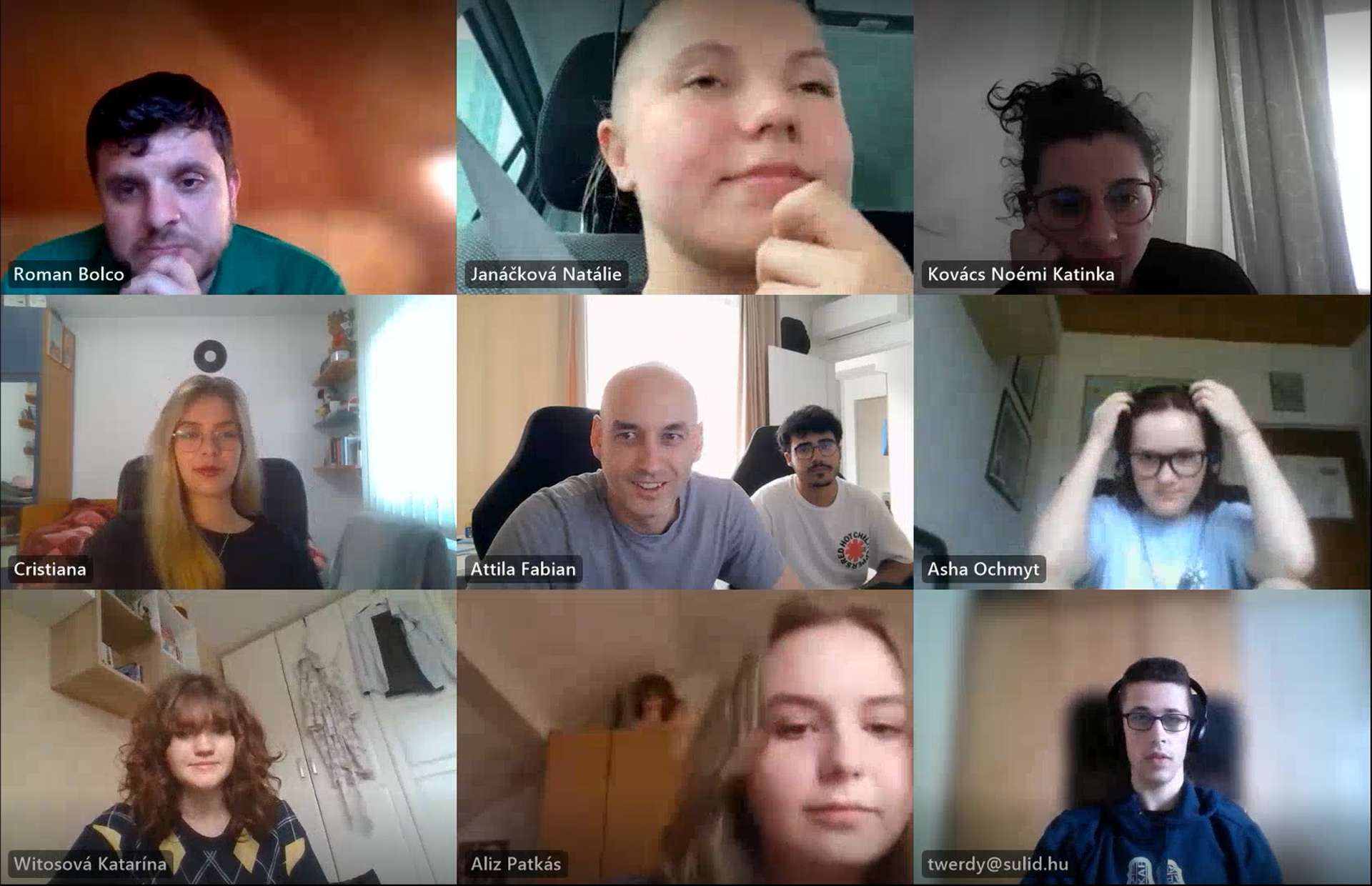
Online calls
YOUTH MENTORSHIP BOOKLET
As part of this project we have developed a strategic framework for setting up a mentorship programme. The Booklet compiles all the information and guidelines we find essential to implement such type of system in any organization. The process is already influencing many NGOs within and without the E29 universe and we expect this booklet to be the basis for an even higher impact within the youth field.
Download now our booklet – the Youth Mentorship Framework | Find it also on Scribd and SALTO

Funded by the European Union. Views and opinions expressed are however those of the author(s) only and do not necessarily reflect those of the European Union or the European Education and Culture Executive Agency (EACEA). Neither the European Union nor EACEA can be held responsible for them.

